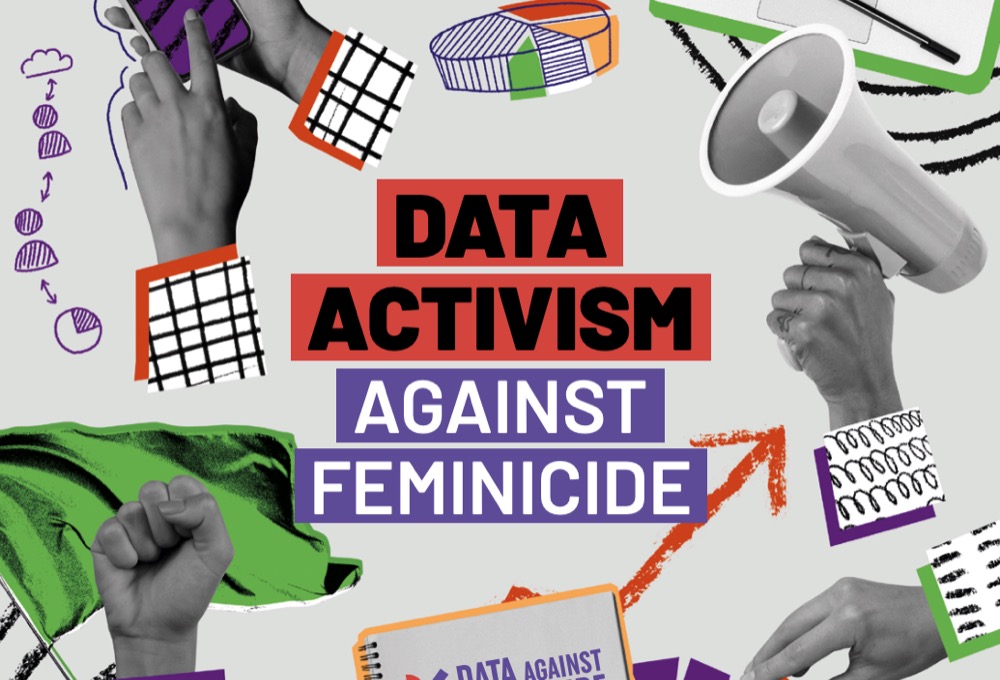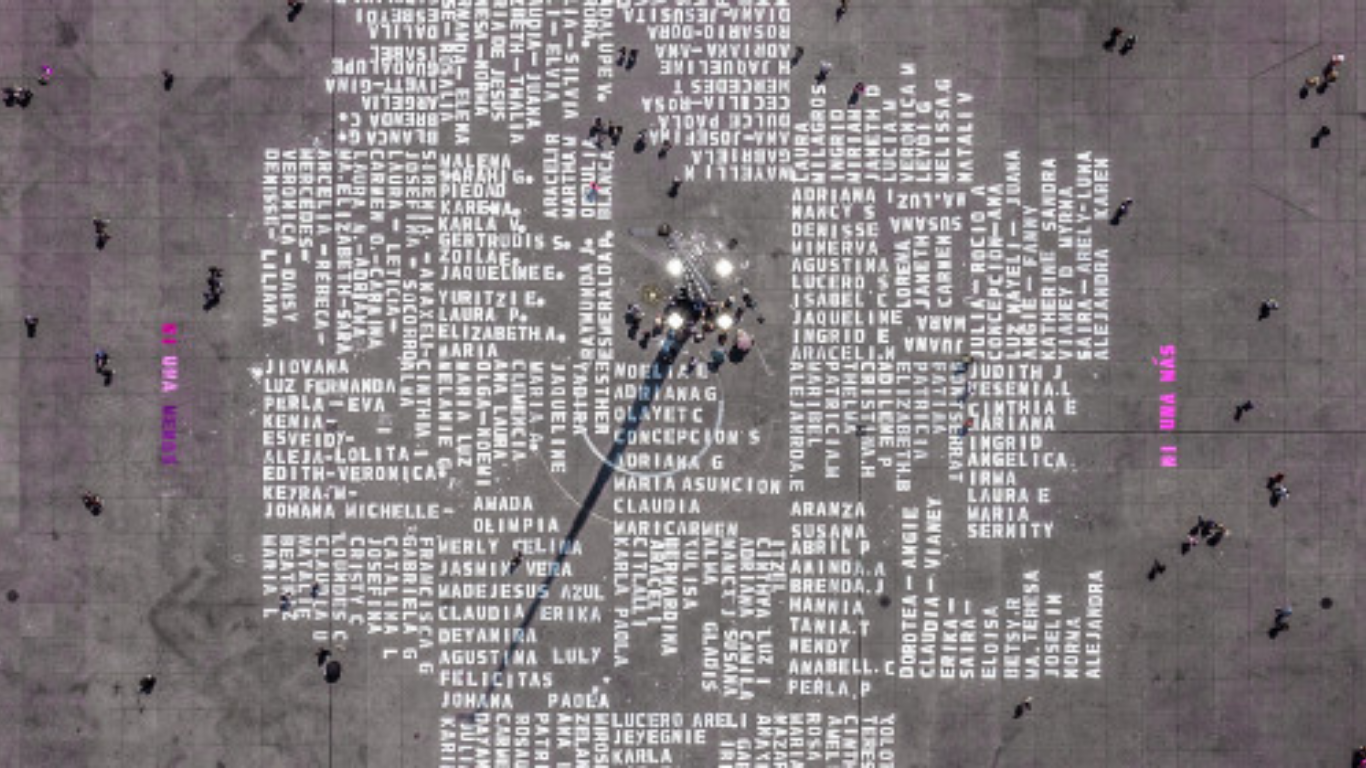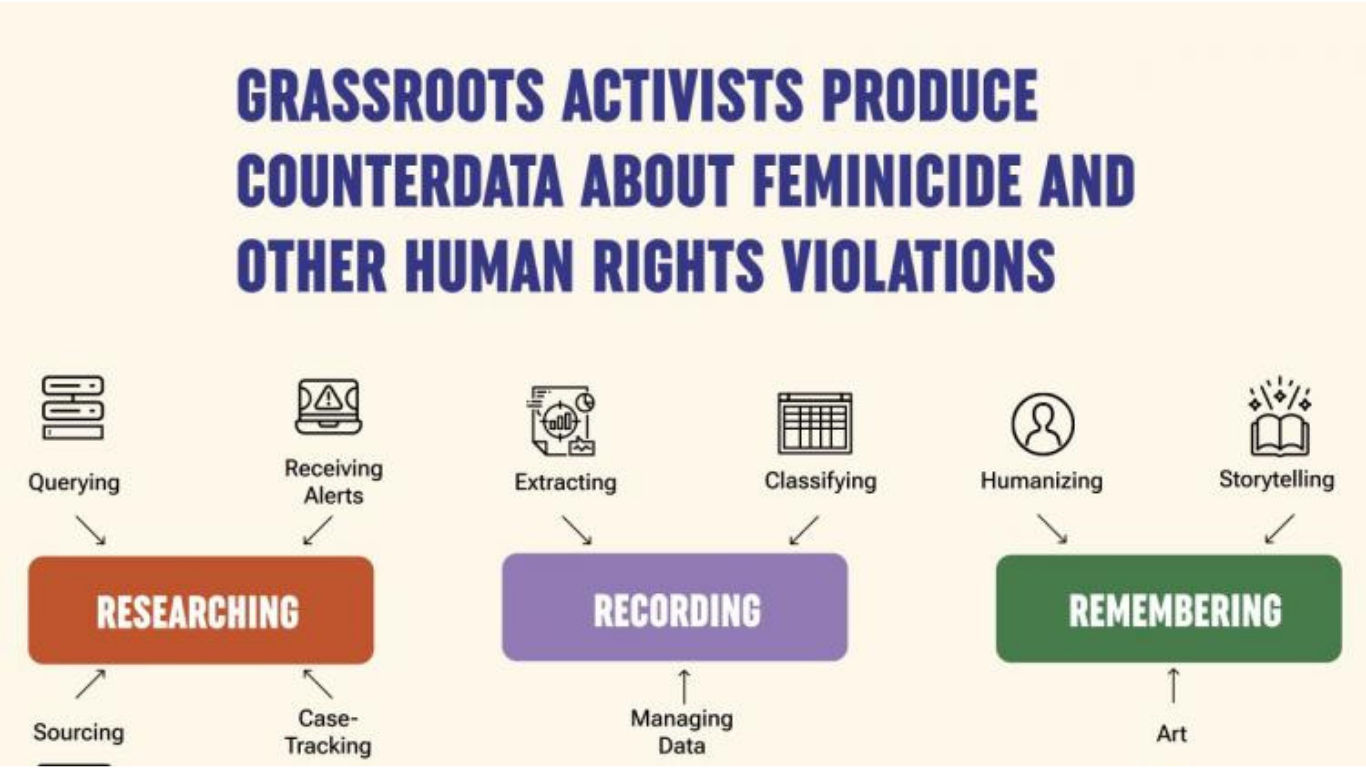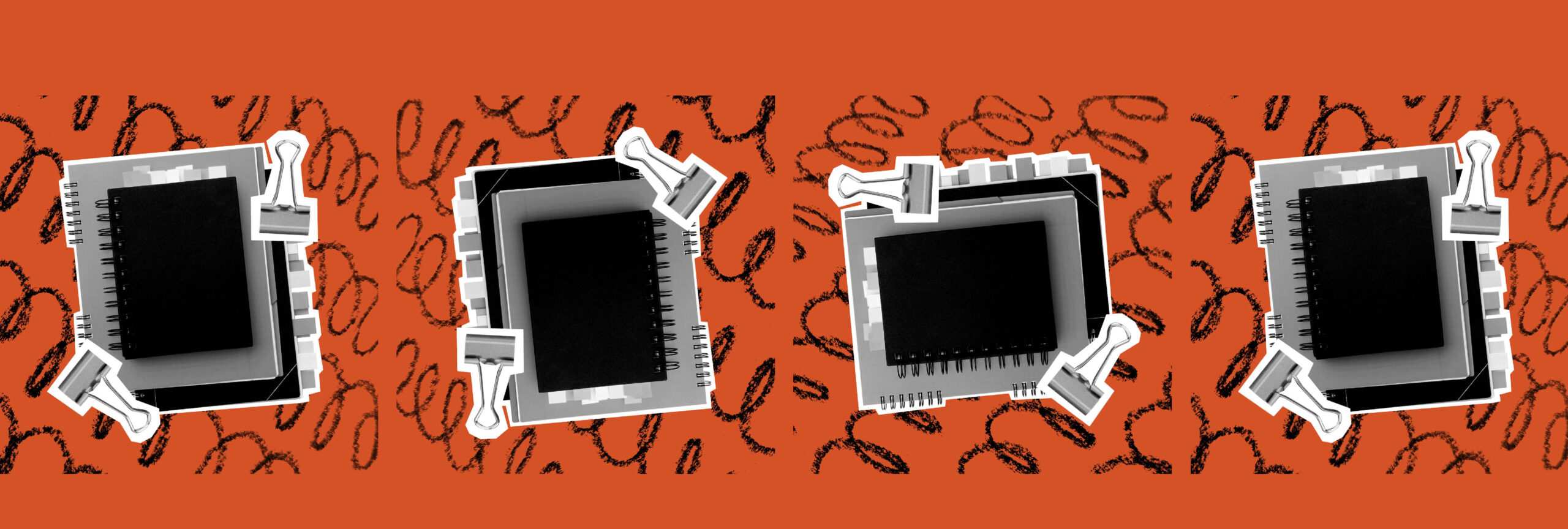One of the pillars of Data Against Feminicide is academic research. From 2021 until early 2023, we conducted more than 40 interviews with activists, civil society organizations, and academic groups that produce feminicide data in 18 countries. The main focus has been on the Americas, but projects in Europe and Africa were also interviewed.
Based on these interviews and on the meetings and joint work with various activists that continues today, both the DCF project leaders and other collaborators have produced publications, dissemination at events, and other products to share the knowledge developed.
Featured
-

Data Activism Against Feminicide (Cruxên & Jungs de Almeida, 2024)
-

Counting Feminicide: Data Feminism in Action (D’Ignazio, 2024)
-

Feminicide and counterdata production: Activist efforts to monitor and challenge gender-related violence (D’Ignazio et al, 2022)
-

Geographies of missing data: Spatializing counterdata production against feminicide (D’Ignazio et al, 2024)
Latest publications
-
Data-Inflected Visions of Feminicide (Suárez Val, 2025)
This paper advances the notion of “data-inflected visions” to show how various visual representations may come come to be imagined as data, and how doing so opens up different meanings for the political and affective work of data. The visuality of social issues is produced through competing hegemonic and alternative visions, and conventional visualization is
-
Data Activism Against Feminicide (Cruxên & Jungs de Almeida, 2024)
What role does data play in addressing gender-based violence? This report summarizes the results of five years of collective work as part of the Data Against Feminicide project. Data Against Feminicide is a South-North participatory action research and design project that supports the work of activists and civil society organizations that produce data on gender-based
-
Counting Feminicide: Data Feminism in Action (D’Ignazio, 2024)
What isn’t counted doesn’t count. And dominant institutions systematically fail to account for feminicide, the gender-based murder of women and girls, including cisgender and transgender women. In the face of this failure, Counting Feminicide foregrounds the work of data activists across the Americas who are documenting these kinds of murders and challenging the reigning logic
-
Feminicide and counterdata production: Activist efforts to monitor and challenge gender-related violence (D’Ignazio et al, 2022)
Gender-based violence against women and its lethal consequence, femicide, are a serious problem worldwide. Official government data on gender-based violence and femicide are often absent, incomplete, infrequently updated, and contested. We draw on data feminism to situate femicide data as missing data. Drawing on qualitative interviews, this study analyzes the informatics work of ten activist
-
MISSING DATA (Jungs de Almeida et al, 2024)
This article explores the concept of “missing data” from a political and social perspective, rather than merely a technical one. While traditional definitions of missing data typically refer to information that is literally missing or incomplete, the approach taken here, aligned with artist and educator Mimi Ọnụọha, considers missing data as that which does not
-
Data Against Feminicide: The Process and Impact of Codesigning Digital Research Tools (Suárez Val et al, 2024)
Data Against Feminicide is an action research collaboration that aims to foster an international community of practice around femicide data. In this chapter, we introduce two tools we have co-designed and tested with activists to facilitate their work and ease the burdens on their workflow. Data Against Feminicide Email Alerts is an artificial intelligence-based system that detects
-
Geographies of missing data: Spatializing counterdata production against feminicide (D’Ignazio et al, 2024)
Feminicide is the murder of cisgender and transgender women and girls for gender-related reasons. It reflects systems of patriarchal and racialized oppression and reveals how territories and socioeconomic landscapes shape everyday gender-based violence. In recent decades, many community data production initiatives have emerged with the goal of monitoring this extreme yet often invisible phenomenon. We
-
Missing data and counterdata (Cruxên et al, 2024)
Cruxên, I., Jungs de Almeida, A., Klein, L. F., & D’Ignazio, C. (2024). Dados Ausentes e Contradados. Em S. Mariano (Ed.), Informe Feminicídios no Brasil 2023: Monitor de Feminicídios no Brasil. Márcio Ferreira de Souza. https://dspace.mit.edu/handle/1721.1/157846?show=full O Monitor de Feminicídios no Brasil (MFB) é uma iniciativa do Laboratório de Estudos de Feminicídios no Brasil, formado
-
Challenging (in)security: Missing Data and Counterdata Production on Feminicides in the Americas (Jungs de Almeida et al, forthcoming)
Jungs de Almeida, A., Cruxên, I., Radhakrishnan, R., & D’Ignazio, C. (forthcoming). Challenging (in)security: Missing Data and Counterdata Production on Feminicides in the Americas. En P. Anctil (Ed.), Feminist Security Studies in the Americas: Pushing the Fronteras. Palgrave Macmillan. Enlace externo
-
Data-Inflected Visions of Feminicide (Suárez Val, 2025)
This paper advances the notion of “data-inflected visions” to show how various visual representations may come come to be imagined as data, and how doing so opens up different meanings for the political and affective work of data. The visuality of social issues is produced through competing hegemonic and alternative visions, and conventional visualization is
-
Counting Feminicide: Data Feminism in Action (D’Ignazio, 2024)
What isn’t counted doesn’t count. And dominant institutions systematically fail to account for feminicide, the gender-based murder of women and girls, including cisgender and transgender women. In the face of this failure, Counting Feminicide foregrounds the work of data activists across the Americas who are documenting these kinds of murders and challenging the reigning logic
-
Data artivism and feminicide (Suárez Val et al, 2023)
Suárez Val, H., D’Ignazio, C., Acosta Romero, J., Teng, M. Q., & Fumega, S. (2023). Data artivism and feminicide. Big Data & Society, 10(2). https://doi.org/10.1177/20539517231215356 Data has become a key format for activists to visibilizar (make visible/call attention to) and denounce social issues. Drawing on the concept of “artivism,” we name as data artivism those works
-
Vibrant Maps (Suárez Val, 2018)
In recent years, feminist activists in various Latin American countries have been creating digital maps of feminicide —the gender-related violent deaths of women. The intersection of activism and mapping has been explored by scholars and activists who have addressed the performative, participatory and political nature of mapping, and by feminist scholars who have analysed and
-
Data Activism Against Feminicide (Cruxên & Jungs de Almeida, 2024)
What role does data play in addressing gender-based violence? This report summarizes the results of five years of collective work as part of the Data Against Feminicide project. Data Against Feminicide is a South-North participatory action research and design project that supports the work of activists and civil society organizations that produce data on gender-based
-
Counting Feminicide: Data Feminism in Action (D’Ignazio, 2024)
What isn’t counted doesn’t count. And dominant institutions systematically fail to account for feminicide, the gender-based murder of women and girls, including cisgender and transgender women. In the face of this failure, Counting Feminicide foregrounds the work of data activists across the Americas who are documenting these kinds of murders and challenging the reigning logic
-
Data Against Feminicide: The Process and Impact of Codesigning Digital Research Tools (Suárez Val et al, 2024)
Data Against Feminicide is an action research collaboration that aims to foster an international community of practice around femicide data. In this chapter, we introduce two tools we have co-designed and tested with activists to facilitate their work and ease the burdens on their workflow. Data Against Feminicide Email Alerts is an artificial intelligence-based system that detects
-
Challenging (in)security: Missing Data and Counterdata Production on Feminicides in the Americas (Jungs de Almeida et al, forthcoming)
Jungs de Almeida, A., Cruxên, I., Radhakrishnan, R., & D’Ignazio, C. (forthcoming). Challenging (in)security: Missing Data and Counterdata Production on Feminicides in the Americas. En P. Anctil (Ed.), Feminist Security Studies in the Americas: Pushing the Fronteras. Palgrave Macmillan. Enlace externo
-
The revolution shall not be automated: On the political possibilities of activism through data & AI (Cruxên, 2024)
Reflecting on the “AI revolution”, Isadora Cruxên draws on her experience working with activists in the collaborative project Data Against Feminicide to argue that the politics of data and AI is, at heart, a politics of knowledge production. She invites us all to take part in this conversation. Cruxên, I. (2024, mayo 28). The revolution
-
Technology and Anti-Feminicide Data Activists (Jungs de Almeida et al, 2023)
Data Against Feminicide project collaborates with Brazilian civil society organizations to develop digital technologies to support the struggle against feminicide. Jungs de Almeida, A., D’Ignazio, C., França, C., Cruxên, I., Kalil, M. E. X., Marques, R., Mariano, S., Negrão, T., & Siqueira, T. P. (2023, agosto 30). Tecnologia e Ativistas de Dados Contra o Feminicídio.
-
Human-Centered Computing and Feminicide Counterdata Science (D’Ignazio, 2023)
Data about feminicide can be conceived as missing data – data that are neglected by authorities and underreported in official registries. Activists and civil society groups in Latin America and beyond are increasingly stepping into these gendered data gaps to undertake feminist counterdata science – an explicit challenge to the inadequate data practices of governments
-
Feminicide Data Activism (Collectif Féminicides Par Compagnons ou Ex at al, 2023)
This chapter weaves together, as nodes in a network of care, the experiences of activists collecting feminicide data in France, Germany, Kenya, Kyrgyzstan, Mexico, Russia, the United States, and Venezuela. In our work, we draw from a long genealogy of feminist research and activism on femicide/feminicide and gender-related violence. To contextualise our practices, we draw
-
Feminicide and counterdata production. A conversation with FAIR
Feminicide and counterdata production. A conversation between the DCF team and the Feminist AI Research Network (FAIR). ILDA, Data + Feminism Lab, Feminicidio Uruguay, Tierra Común, & Feminista AI Research Network (Producers). (2022, agosto 9). Feminicidio y la producción de contradatos [Video recording]. https://www.youtube.com/watch?v=Nhu8mBoBvXs
-
Feminicide data, emotional labor and self-care (Suárez Val et al, 2022)
Producing feminicide data has historically been an important feminist tactic to make gender-related violence visible and to draw attention to the lack of data from official sources. María Puig de la Bellacasa says, in relation to the production of knowledge, that “care” implies simultaneously the work of daily maintenance, an ethico-political commitment and the affective
-
Counting Feminicide: Data Feminism in Action (D’Ignazio, 2024)
What isn’t counted doesn’t count. And dominant institutions systematically fail to account for feminicide, the gender-based murder of women and girls, including cisgender and transgender women. In the face of this failure, Counting Feminicide foregrounds the work of data activists across the Americas who are documenting these kinds of murders and challenging the reigning logic
-
Feminicide and counterdata production: Activist efforts to monitor and challenge gender-related violence (D’Ignazio et al, 2022)
Gender-based violence against women and its lethal consequence, femicide, are a serious problem worldwide. Official government data on gender-based violence and femicide are often absent, incomplete, infrequently updated, and contested. We draw on data feminism to situate femicide data as missing data. Drawing on qualitative interviews, this study analyzes the informatics work of ten activist
-
MISSING DATA (Jungs de Almeida et al, 2024)
This article explores the concept of “missing data” from a political and social perspective, rather than merely a technical one. While traditional definitions of missing data typically refer to information that is literally missing or incomplete, the approach taken here, aligned with artist and educator Mimi Ọnụọha, considers missing data as that which does not
-
Geographies of missing data: Spatializing counterdata production against feminicide (D’Ignazio et al, 2024)
Feminicide is the murder of cisgender and transgender women and girls for gender-related reasons. It reflects systems of patriarchal and racialized oppression and reveals how territories and socioeconomic landscapes shape everyday gender-based violence. In recent decades, many community data production initiatives have emerged with the goal of monitoring this extreme yet often invisible phenomenon. We
-
Missing data and counterdata (Cruxên et al, 2024)
Cruxên, I., Jungs de Almeida, A., Klein, L. F., & D’Ignazio, C. (2024). Dados Ausentes e Contradados. Em S. Mariano (Ed.), Informe Feminicídios no Brasil 2023: Monitor de Feminicídios no Brasil. Márcio Ferreira de Souza. https://dspace.mit.edu/handle/1721.1/157846?show=full O Monitor de Feminicídios no Brasil (MFB) é uma iniciativa do Laboratório de Estudos de Feminicídios no Brasil, formado
-
Feminicide Data Activism (Collectif Féminicides Par Compagnons ou Ex at al, 2023)
This chapter weaves together, as nodes in a network of care, the experiences of activists collecting feminicide data in France, Germany, Kenya, Kyrgyzstan, Mexico, Russia, the United States, and Venezuela. In our work, we draw from a long genealogy of feminist research and activism on femicide/feminicide and gender-related violence. To contextualise our practices, we draw
-
Feminicide data, emotional labor and self-care (Suárez Val et al, 2022)
Producing feminicide data has historically been an important feminist tactic to make gender-related violence visible and to draw attention to the lack of data from official sources. María Puig de la Bellacasa says, in relation to the production of knowledge, that “care” implies simultaneously the work of daily maintenance, an ethico-political commitment and the affective
-
Latin American standardisation of data on feminicide (Fumega et al, 2023)
This chapter presents the results of a participatory action-research strategy that led to the creation of a feminicide data standard. In response to the lack of homogenisation in data collection of feminicide across the region, ILDA has worked in different contexts and with different partners throughout two iterations of the feminicide data standard project. In
-
Data Frames of Feminicide (Suárez Val, 2021)
Feminicide (or femicide) is a feminist category that designates –and denouncesthe gender-related violent deaths of women, adolescents, and girls, especially murders. Especially in Latin America, the category has provided a frame for feminist activists, and most recently governments, to gather data about feminicide. This work seeks to understand the implications of how feminicide data are
-
Tell stories with data about violence against women (Datasketch, 2020)
-
Discordant data. Public information about femicide in Uruguay (Suárez Val, 2020)
Accessing official data on cases of femicide is not an easy task in Uruguay, and when accessed, there are discordant data. This issue has serious repercussions, both for the awareness of the population and for the design of public policies and the actions of civil society in the face of the phenomenon. This paper examines
-
Tracking Latin America’s Other Pandemic: Violence Against Women (Fumega, 2020)
Better data on gender-based violence is needed now more than ever. Fumega, S. (2020, abril 13). Tracking Latin America’s Other Pandemic: Violence Against Women. Americas Quarterly. https://www.americasquarterly.org/article/tracking-latin-americas-other-pandemic-violence-against-women/ Enlace externo
-
Open data, gender and violence in Latin America (Fumega, 2019)
This article focuses on the project entitled Estandarización de datos de femicidios (Standardisation of Data on Femicide). Firstly, we contextualise the current status of open data in Latin America. We then explain our hypothesis of how standardising data could help us improve data quality and, lastly, we reflect on our study. Standardisation (and the eventual
-
Vibrant Maps (Suárez Val, 2018)
In recent years, feminist activists in various Latin American countries have been creating digital maps of feminicide —the gender-related violent deaths of women. The intersection of activism and mapping has been explored by scholars and activists who have addressed the performative, participatory and political nature of mapping, and by feminist scholars who have analysed and

